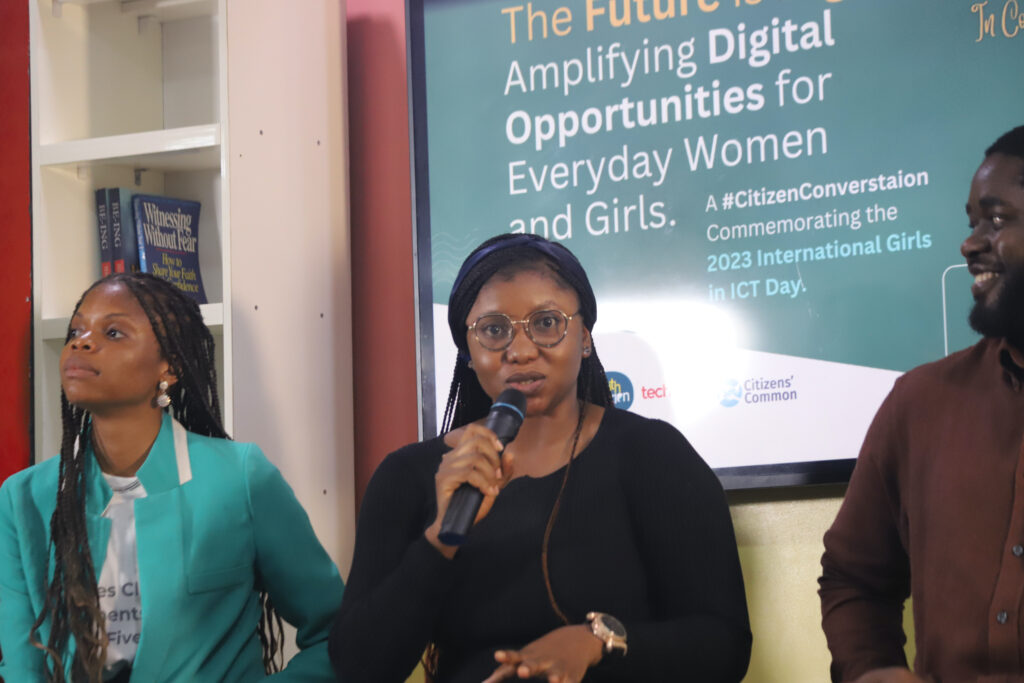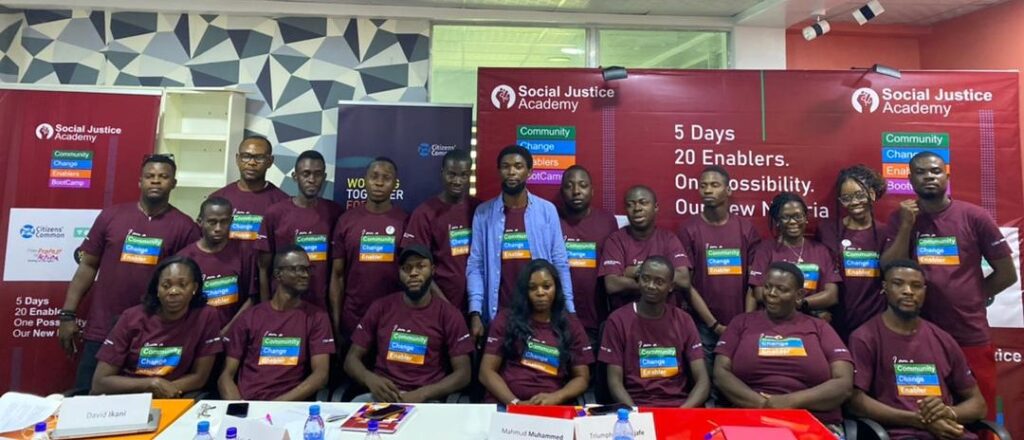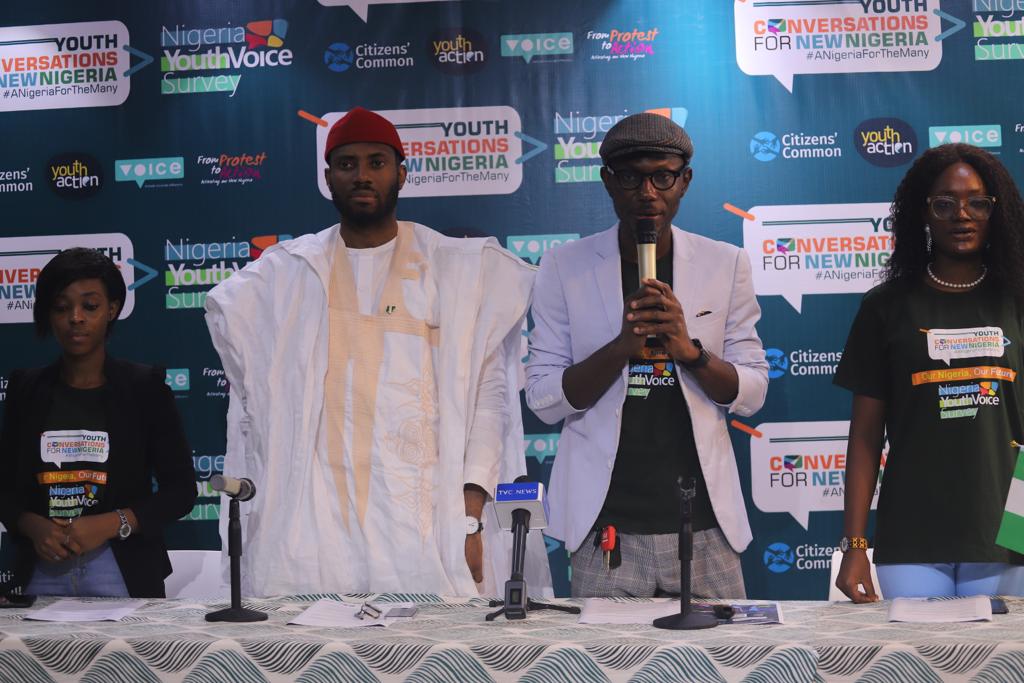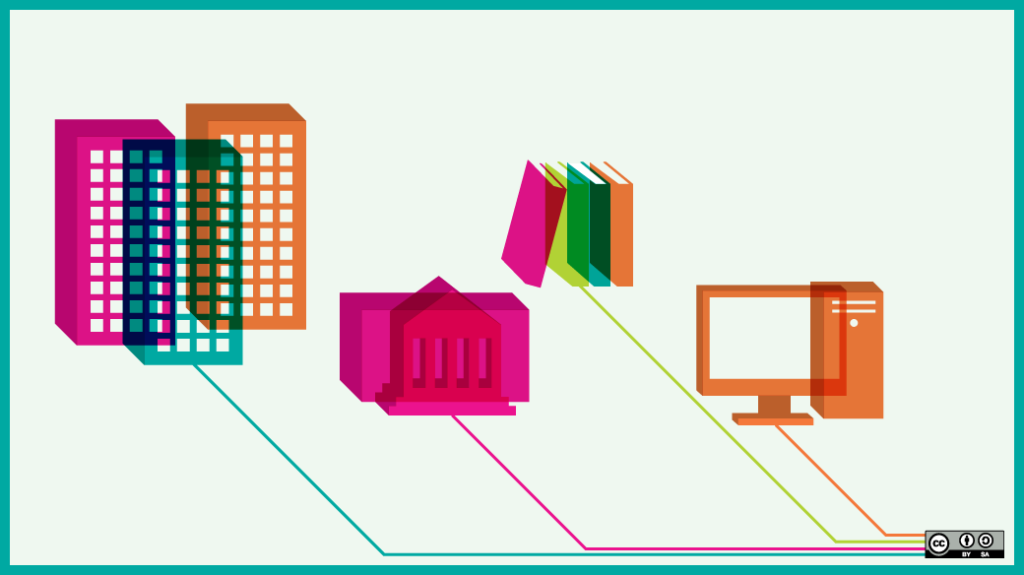
The Future is Digital: Amplifying Digital Opportunities for Everyday Women and Girls
On the 27th of April 2023, Citizen Commons Advocacy International, in partnership with @ImpactCentral, @CitizenCentral, @KinetikAcademy and our flagship #Tech4Dev program @Techcorp, hosted a citizen conversation to commemorate the 2023 International Day of Girls in ICT.
The theme for the Girls in ICT World Day is “Digital Skills for Life,” which aims to inspire and encourage girls to pursue careers in ICTs. ICT stands for Information and Communications Technology, which refers to the technologies used to transmit, store, create, share, or exchange information. This includes the internet (such as social media, websites, blogs, and emails), computers, live broadcasting technologies (like audio and video players, storage devices, and podcasting), and telephony (including fixed or mobile, satellite, Visio/video-conferencing, and more).
In today’s world, where technology plays an important role in both personal and professional life, digital skills are becoming increasingly crucial. According to UN research, by 2050, 75% of jobs will be related to STEM areas, yet 37% of women do not use the internet. This underrepresentation of women in technology and their lack of digital skills leads to gender gaps in economic opportunities and income.
Therefore, the conversation aimed to discuss the challenges that women face in the digital space and strategies for empowering girls and women to pursue a career in ICT.
HIGHLIGHTS OF THE DISCUSSION:
The discussion centered around the challenges that women face in the digital space and strategies for empowering girls and women to pursue a career in ICT. Some of the key challenges and barriers limiting girls and women from pursuing a career and maximizing opportunities in ICT are:
- Limited access to education, professional training, and economic opportunities.
- Digital gender-based violence and harassment, gender- and age-based discrimination due to cultural mindsets and stereotypes.
- Lack of representation and mentors.
- Unequal pay.
ADDRESSING THE ISSUES OF GIRLS AND WOMEN IN ICT: WAY FORWARD
Addressing the issues of low representation of women and girls in the ICT space will require a joint effort from the government, private and public sector. Here are possible solutions listed during the discussion:
- Creation of community-based hubs for women in ICT: There is a need for each community to have tech hubs for easy accessibility to the internet and other tech infrastructures. For example, if communities in Nigeria have at least 200 computers in a tech hub, this will increase women’s participation in tech.
- Encourage girls to pursue STEM education: Encouraging girls to pursue education in Science, Technology, Engineering, and Mathematics (STEM) is the first step to bridging the gender gap in ICT. This can be achieved by providing scholarships, internships, and mentorship programs for girls in STEM.
- Enacting transformative gender discrimination policies: Policies gender-sensitive will go a long way in encouraging them to stay in the industry. This can be achieved by promoting gender diversity, offering flexible work arrangements, and providing support for career development.
- Government, private sector, and public sector partnership: There should be a private and public organization collaboration for wider coverage. This partnership can provide funding, computers, and mentorship needed to encourage women to go into STEM. Governments should establish vocational training centers to teach women and girls’ digital skills.
- The Bottom-up approach: There is a need to use the bottom-up approach to develop policies for inclusivity. That is, individuals or small groups within an organization or community are empowered to identify and address problems or opportunities. This can involve gathering information, analyzing data, and developing solutions at a local level, which can then be scaled up to a larger
- Religion-based Approaches: Using religion-based approaches to communicate with particular target areas and empower communities with tech skills can be effective in promoting digital literacy among women and girls. Religious leaders can help dispel cultural myths and stereotypes surrounding women’s involvement in ICT by highlighting the importance of digital skills for personal and professional development.
- Community-Based Development: It is important to ensure that community-based development becomes sustainable and is adopted by the community itself. This can be achieved by fostering partnerships between development partners, stakeholders, and beneficiaries. Local communities should be empowered to take ownership of digital skills training programs, ensuring that they are tailored to their specific needs and challenges.
- Early Education Curriculum: Existing institutions should include digital skills training in early education curricula, from elementary to high school. This will help girls access digital skills at an early age, empowering them to pursue careers in ICT and other fields.
Addressing the gender gap in digital skills can promote gender equality and empower women to achieve their full potential.
In Conversation
Olaleye Adeola, Software Engineer at SeamlesshHR.
Charles Falajiki, Chief Development Officer @AREAi
Hemense Lan, Frontend Developer at AFEX.
Benedicta Philemon, Data Analyst for an African exchange company.
Olutola Awosiku (Vivian) Awosiku, Chief Information Officer, Healthstack Solutions Limited. Winner, 2020 MIT Hacking Racism in Healthcare.
Bukola Adimula (Communications Program Associate @Citizen Commons ) Moderator-









Responses